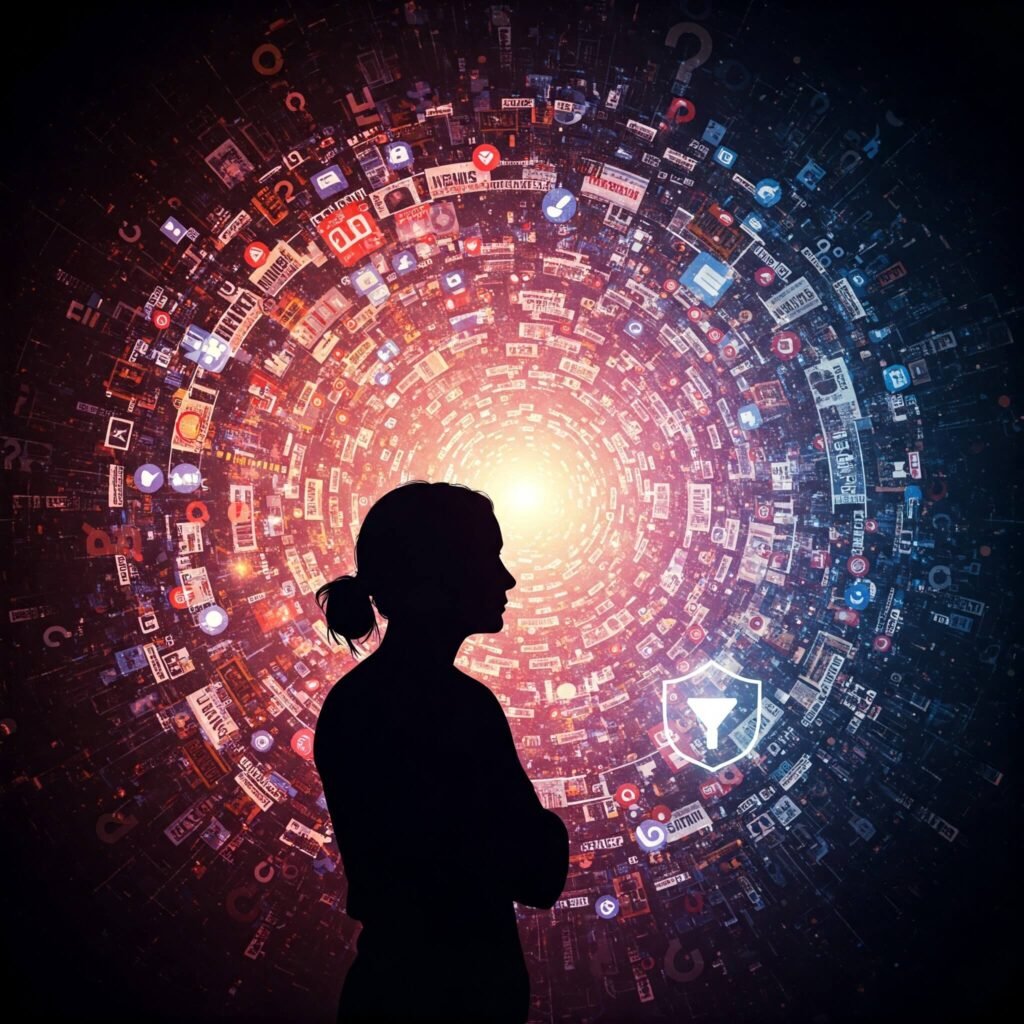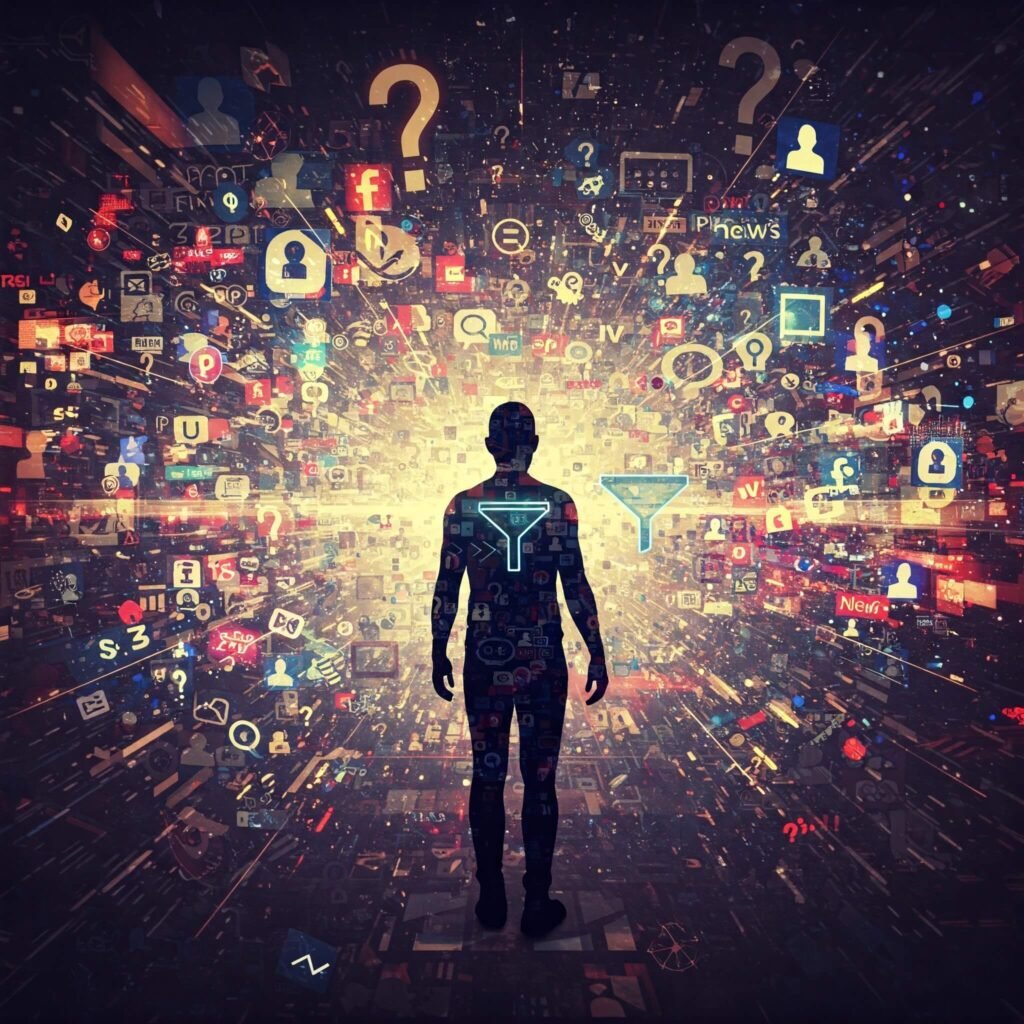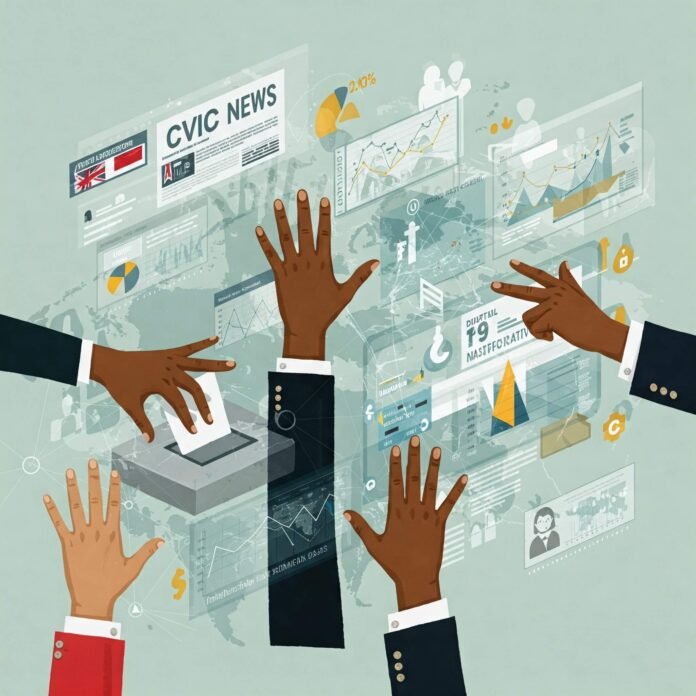Casting a ballot is one of the most fundamental acts in a democracy. But in an era of rapid information flow, complex global challenges, and shifting political landscapes, simply showing up to vote isn’t enough. Therefore, to truly participate effectively, every citizen needs a robust understanding of the political world around them. This is where Political Literacy in 2025 becomes not just beneficial, but absolutely essential.
As we navigate 2025, the decisions made by our elected officials will have profound impacts on our lives, from the economy and healthcare to climate change and technology regulation. Indeed, making informed choices at the ballot box requires more than just name recognition or party loyalty; it demands genuine political understanding. Without it, voters are susceptible to misinformation, manipulation, and ultimately, choices that may not serve their best interests or the health of the democracy itself.

What Exactly is Political Literacy in 2025?
So, what does Political Literacy in 2025 actually entail? Simply put, it’s far more than just knowing who the current leaders are or the basic structure of government. Specifically, in today’s dynamic environment, political understanding encompasses a range of skills and knowledge:
- Understanding Systems: Grasping how local, national, and international political systems function. For example, how laws are made, how power is distributed, and the roles of different institutions.
- Evaluating Information: Critically analyzing news, social media, campaign messages, and other sources for bias, accuracy, and completeness. Significantly, this is crucial for navigating the misinformation prevalent in 2025.
- Identifying Key Issues: Recognizing the major challenges facing society and understanding the different policy approaches proposed by various political actors. Furthermore, this involves understanding the nuances of complex problems.
- Recognizing Perspectives: Being able to understand the viewpoints, motivations, and arguments of different political groups and individuals, even those you disagree with. Moreover, it means seeking out these diverse perspectives.
- Civic Engagement: Knowing how to participate beyond voting – through contacting representatives, peaceful protest, community organizing, or engaging in respectful public discourse. Finally, it includes feeling empowered to take these actions.
Beyond Just Knowing Names: The Depth of Political Understanding
Thus, in 2025, a truly literate citizen possesses political understanding that allows them to connect the dots between policy proposals, their potential real-world effects, and the underlying ideologies of those proposing them. In other words, it’s about looking past the soundbite to understand the substance.
The Urgent Need for Political Literacy in 2025
Why is Political Literacy in 2025 particularly critical now? The answer lies in several factors that make this year a crucial time for citizens to deepen their understanding of the political landscape.
- The Information Overload: The sheer volume and speed of information (and misinformation) disseminated through digital channels is unprecedented. As a result, without strong political understanding, distinguishing fact from fiction is incredibly challenging. We are bombarded with conflicting claims daily.
- Complex Challenges: Additionally, issues like climate change, artificial intelligence regulation, global economic shifts, and public health crises require voters to grapple with complex information and trade-offs. Informed decisions demand a higher level of civic knowledge to weigh potential outcomes.
- Increased Polarization: Furthermore, understanding the roots and consequences of political polarization requires a nuanced political understanding that goes beyond simply choosing a side. It involves recognizing different values, historical contexts, and potential compromises to bridge divides.
- Erosion of Trust: Lastly, declining trust in institutions and traditional media makes it harder for citizens to find reliable information. However, strong political understanding equips individuals to find trustworthy sources and evaluate claims independently, even when trust is low.
Navigating the Information Age: The Voter’s Challenge
For example, consider the viral spread of a misleading meme about a new proposed law. A voter with low political literacy might accept it at face value and share it without thinking. A voter with strong political understanding, however, would pause, question the source, perhaps search for the actual text of the bill or reports from reputable non-partisan analysts. Indeed, this critical engagement is vital in 2025.
Making Informed Choices at the Ballot Box
Ultimately, the goal of Political Literacy in 2025 is to empower voters to make informed choices that align with their values and contribute to a healthy society. This isn’t about telling people who to vote for, but equipping them with the tools to decide why they should vote for a particular candidate or support a specific policy. Therefore, it directly impacts the future we build.
How to Enhance Your Political Literacy in 2025
Improving your Political Literacy in 2025 is an ongoing process, but thankfully, it’s achievable for everyone. Here are some actionable steps you can take to start:
- Vary Your News Sources: Don’t rely on just one news outlet or social media feed, as this can create echo chambers. Seek out a range of perspectives, including those from reputable international sources.
- Read Beyond Headlines: Dive into longer articles, reports, and analyses. Understand the context and details of an issue, rather than just reacting to a catchy title.
- Identify Bias: Learn to recognize different types of media bias (e.g., selection bias, framing bias) and understand the potential motivations of different information providers. This awareness is crucial for objective analysis.
- Check Fact-Checkers: Utilize reputable fact-checking websites to verify questionable claims you encounter online. Cross-referencing information is a powerful tool against misinformation.
- Understand the Process: Read up on how your local and national governments actually work. Knowledge of the legislative process, electoral systems, etc., is foundational to political understanding. (Outbound link suggestion: Link to a non-partisan explanation of the legislative process in your country/region).
- Engage Respectfully: Discuss political issues with people who hold different views. Listen actively and try to understand their reasoning, even if you disagree, as this broadens your own perspective.

Finding Trustworthy Political Information
Therefore, building strong political literacy in 2025 requires relying on credible information. Look for sources that:
- Have a track record of accuracy and correct errors when they occur.
- Also, cite their sources so you can verify the information yourself.
- Furthermore, clearly distinguish between news reporting and opinion pieces.
- Finally, are transparent about their funding or affiliations, which can reveal potential biases.
For instance, examples might include established news agencies (like Reuters or Associated Press), academic institutions, government data portals, and non-partisan research organizations. (Outbound link suggestion: Link to a reputable, non-partisan guide on identifying media bias or a major fact-checking organization).
Engaging Critically: Sharpening Your Civic Skills
In essence, being politically literate in 2025 isn’t just about consuming information; it’s about processing it actively. Therefore, ask questions: Who is providing this information? What is their agenda? What evidence do they offer? Are there alternative explanations or viewpoints? This active engagement is key to developing robust political understanding and making sense of complex issues.
The Impact of Political Literacy in 2025 on Democracy
Therefore, a citizenry with high Political Literacy in 2025 is the bedrock of a healthy democracy. When voters are informed, several positive impacts emerge:
- First, they can hold their elected officials more effectively accountable for their actions and decisions.
- Second, they are less susceptible to populist rhetoric and misleading campaigns designed to manipulate emotions.
- Third, they are more likely to participate in the political process beyond just voting, such as contacting representatives or volunteering.
- Fourth, policy decisions are more likely to reflect the informed will of the people, leading to better governance.
- Finally, society is better equipped to address complex challenges collaboratively when citizens understand the issues at hand.

Strengthening Democracy Through Informed Citizens
In conclusion for this section, ultimately, investing in Political Literacy in 2025 means investing in a more resilient, responsive, and truly representative society. It empowers individuals and strengthens the collective capacity to navigate the challenges and opportunities of the future.
Conclusion: Your Role in Political Literacy in 2025
In summary, the political landscape of 2025 is complex and constantly evolving. Consequently, the need for informed, engaged citizens has never been greater. While developing your Political Literacy in 2025 is a personal responsibility, it’s also an act that benefits your community and your democracy as a whole.
Therefore, take the steps today to deepen your political understanding. Seek out reliable information, practice critical thinking, and engage thoughtfully with the issues that matter. Ultimately, your voice, informed by genuine civic knowledge, is the most powerful tool you have in shaping the future.

